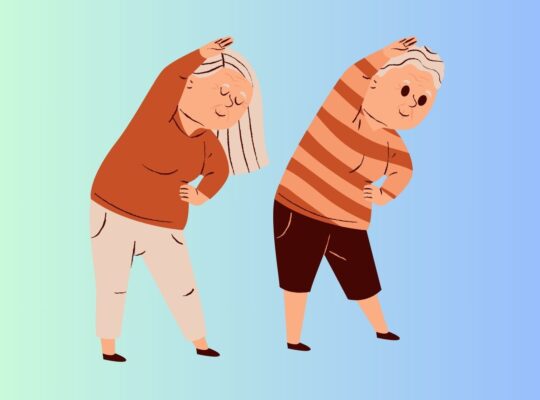Nothing In Life Is Guaranteed But Change
In this article: Powerful coping skills and tips to take care of yourself.
A World Disrupted
This won’t last forever. These words are always dispensed with care, but even though they are true, it doesn’t really help when offered in difficult times. Yes, disruption and change are temporary, but you still have to ride the wave to make it through the other side.
It might not feel like it, but how you feel now won’t be how you always feel. If you’re going through trauma, it won’t always be as raw as it feels initially. If you’re dealing with disruption, it won’t always be a disruption.
At the end of the day, life offers us only one guarantee and that guarantee is change. While change is inevitable and that is a fact we know, it is incredibly easy to forget.
Right now change is rampant as we struggle to navigate a changing world.
When we are struggling or suffering, it’s easy to feel as though it will always feel this way. That’s why so many people lose hope. I don’t want you to lose hope.
Humans have a kind of love-hate relationship with disruption and change. When something isn’t going well, the idea that something will come along to disrupt it, the fact that change will come, that’s comforting. The knowledge that nothing will stay the same makes it easier to cope with change arriving during times of upset.
Of course, when everything is going well the idea of change is horrific. Why would I want anything to change when everything is perfect as is? It’s difficult to imagine things getting better so we have negative associations with the idea of change in good time.
In both of these situations, you can’t stop change. It doesn’t matter what you actively do to avoid it, it will come. So, if it’s so unavoidable why are we talking about it?
It’s not just that change affects us, it also influences how we feel about it. Do you embrace change? Do you resist change? Do you fear it? Do you avoid it? Obviously, your feelings about change will depend on your situation. In your daily life, possessing a healthy attitude toward change is important. If you want to live a full and happy life, then you need to learn to roll with the punches. If the fear of change is obstructing you from following your heart, then it’s vital you change your mindset.
Mindfulness is an excellent way to develop a positive mindset. What is mindfulness? It’s simply focusing on the moment you’re in and approaching it non-judgmentally. You are simply noticing what is happening and accepting it as is. This is something you can apply to your mind, the choices you make, the choices you don’t make, and what changes they bring.
Humans crave knowledge and with change comes the unknown. That’s why it is so difficult for people to accept. Change also comes with risk. For anyone who isn’t a natural risk-taker, the idea of change can be loathsome. Mindfulness can assist you through these moments to help you cope with the idea and reality of change.
Choice.
That’s why life is about and if you’re not living the life you had imagined for yourself then there’s a good chance it’s because you’re scared to make the right choices because you’re afraid of change. It might seem like a lost cause, but it isn’t.
Your brain can change, it can adapt, and it does so when you take steps to challenge and create new neural connections. The biggest favor you can do for yourself is to live your values and embrace change, especially when it’s to chase your goals.
You are the only person who can radically change your life. No one else can do that for you if you are not prepared to accept change.
Disruptions Abound
The world has undergone massive changes recently. The early stages of 2020 were entirely disrupted by a pandemic that shut the world down. If you are someone who struggles with change and deal with anxiety, then there’s a good chance you had a difficult time.
While many people were laid off, others were furloughed or working from home. With children at home and many people in lockdown, the uncertainty was challenging. In situations like this, it’s easy to catastrophize. It’s easy to feel overwhelmed, panicked, and dreading leaving the house. It’s a unique crisis, but even in a unique crisis, you possess the skills to cope.
While it isn’t the focus of this it’s important to touch on it. In the face of a pandemic, you can stay informed while not obsessively checking the news. You don’t have to look at what is happening everywhere, that would be overwhelming. Instead, focus on your community and follow the relevant safety precautions.
Likewise, seek out trustworthy sources that will provide you with facts and truth. Don’t monitor the news sites or social media constantly. Aim for a morning update and leave it at that. If you feel overwhelmed, avoid it altogether. Ask someone you trust to provide you with important updates.
Powerful Coping Skills
1| Plan B
You can’t rehearse everything nor can you fully prepare for the unexpected. However, mental flexibility will help you deal with disruption. If you are an efficient person with a vast array of skills, then you are someone who can deal with disruption and roll with change.
2| Communication
You’re not alone in this and as you receive information, you have to communicate that to the relevant people. For example, if you have been laid off you can’t hide that from the people in your home. You will be better at coping if you learn to clearly communicate and be open and honest with what’s going on.
3| Collaboration
Commitment, relationships, and resiliency. That’s the holy trifecta when it comes to bouncing back from change and disruption. When you have people who care about you, empower you, encourage you, and support you, you can get through just about anything. The relationships you forge make you a more resilient person. The commitment you show to overcoming obstacles makes you a more resilient person. That resilience is what will carry you through disruption and change.
4| Principles & Values
What on earth could your principles and values possibly have to do with learning to face disruptions in your life? Well, when you have a clear guidance system (based on your principles and values) it is far easier to navigate decisions.
You are faced with a big decision. How do you know if it’s the right move for you? Does it align with your personal values?
Does it fall in line with your principles? If the answer is yes, you may proceed. If the answer is no, then so must yours be. It sounds simple, but before you can make decisions based on your principles and values, you have to define those principles and values.
5| No Judgment
When you are faced with change and experiencing disruptions, you will feel compelled to judge yourself harshly. We are absolutely our own worst critics. I don’t want you to beat yourself up if you feel upset, worried, anxious, or sad. I want you to acknowledge those emotions and think about how you can deal with them. Take it one step at a time.
Likewise, I would encourage you to avoid judging others who are reacting in their own way and coping with their own anxieties. Change and disruption impact us in a range of ways. In terms of the pandemic, many people were forced to delay or outright cancel their wedding, graduations were held virtually, if at all, funerals were limited to small numbers, and the world was changed.
While this is a fairly unique situation, in terms of its global disruption, we all experience disruption and change in our daily lives outside of pandemics. You don’t know how you would respond to what someone else is going through so don’t judge them for how they do.
Having said that, there is value in looking at the big picture. Do your best to keep things in perspective.
6| Radical Acceptance
Bear with me. How do you feel about the idea that a lot of things in life, even things that might be in your control now, will not be within your control? The thing about change is you don’t know what will change when it comes. For example, Warren manages two departments at work. He is passionate about one of them and adequate at the other.
Then the company decides to do a shuffle and change job roles. Warren loses the department he’s passionate about and is now faced with a department he has adequate knowledge in and another he knows nothing about. He has lost control of the things he normally has control of and there’s nothing he can do about it.
Or is there?
Well, Warren has always been comfortable with the idea of radical acceptance. Life can throw a curveball at any moment and when it does you have to be ready. Warren was ready to up his game and grow in his new position in confidence.
It might be difficult to adopt this mindset, but you can. It begins with positive self-talk and focusing on things you truly can control such as making dinner, starting each day on a positive note, or keeping in touch with a friend.
7| Just the Facts
While it’s easy to get caught up asking what if, you’re better to focus on the facts. Whatever the change, whatever the disruption, dig into it and learn the facts of the situation. This is where mindfulness can help you dial back catastrophic thinking to get to the facts of the matter.
Additionally, it’s wise to seek trusted sources of information and shut out the rest. It doesn’t matter what type of change or disruption you’re dealing with, there will always be outside noise that you have to shut out.
8| Gratitude
What are you grateful for? What things or people in your life fill you with gratitude? When you’re dealing with disruption and facing change, it’s a good time to get to grips with the incredible aspects of your life and to express gratitude to the people you love.
Tell your family and friends how thankful you are for them. If they offer that appreciation in return, accept it with respect and gratitude. There’s something special about sharing feelings of gratitude and it makes everyone feel good.
9| It Starts With You
Self-care is important, and while I’m going to highlight it here, I will go more in-depth in the next section. Yes, I have grouped powerful coping skills separate from taking care of yourself. Though, one could argue that the possession of powerful coping skills is an act of self-care in and of itself.
Tips To Take Care Of Yourself
1| Focus on Control
When dealing with disruption, it’s easy to slip into firefighting mode. That’s exhausting and it’s not going to help. The best thing you can do is focus on what you can control. If you try to control everything, you will control nothing. However, if you focus on controlling what you have the power to control, you will feel calmer by taking productive action.
2| Plan
If you have a lot of anxiety about what could happen, then start planning for what you can. Consider your specific worry, fear, or anxiety, and think about how it could potentially disrupt your life. Sometimes writing out a plan for how you would handle a potential situation will help you manage the stress you feel.
Once you write out a list of your worries and fears, match it with a list of possible solutions. You’re not looking for a perfect answer, you’re looking for what will help you deal with disruption as best you can.
Don’t get caught up on things you can’t control, lay your focus on things you can influence, solve, or change. Then you can create a plan of action and set it to one side and live your life a little less stressed.
3| Say No To What-If
It’s easier said than done to relinquish control and the desire for certainty. If you feel yourself spiraling out of control and giving in to panic or negativity, then you have to ground yourself. This goes back to the mindfulness we discussed earlier. By being mindful you stop the spiral and kickstart your rational brain.
It might sound simple, it is, but it’s also effective. In this type of situation, you have to bring your attention back to your breath and focus on the feeling of air entering and leaving your body as you inhale through your nose and exhale through your mouth. Do this until you feel your body calm down and your brain come back to attention.
4| Stay Connected
For the people isolating throughout a pandemic, the risk of social isolation was great. It isn’t just a pandemic that comes with risks of social isolation, though. Change and disruption in life often come with social changes.
When we feel stressed out and panicked, we tend to withdraw from our social connections and that will only make life more complicated. Even when social distancing is required, you can maintain social connections. As social creatures, we need connection. Feelings of isolation and loneliness exacerbate symptoms of anxiety and depression and can even negatively impact your physical health.
No matter what is going on in your life, keep in touch with friends and family. If you know you’re guilty of withdrawing during times of disruption and change, make a schedule of regular video chats or phone calls. Social media can also be a powerful tool for maintaining connections, just be careful to use it wisely. If certain things upset you, mute keywords to avoid triggers.
5| Contagious Emotions
Everyone needs a bit of reassurance sometimes. When you are facing disruption and going through change, it’s important that you have a sympathetic ear and someone who offers sound advice. However, emotions are contagious so you should select your sounding board wisely.
Don’t seek out people who are naturally negative or who ramp up your anxiety and fears. Turn to the level-headed, thoughtful listeners. It’s imperative that you shut out the negativity and that means avoiding the negative thinkers in your life, especially when you’re exploring new ideas and solutions.
6| Routine
Never underestimate the power of routine. It doesn’t matter whether you’re on lockdown at home or working 80 hour weeks. Go to bed at the same time, get up at the same time, eat your meals on the same schedule, and maintain as much normalcy through change as possible. A good routine is within your control and exerting that control can play an important role in coping with disruption and change.
7| Time Out
It doesn’t matter what type of change you’re going through, it doesn’t matter how much disruption is going on, you have to make time for a time out. Watch a sitcom, read a book, play video or board games, or experiment in the kitchen. Do activities that will naturally lift you up and out of your worries and concerns. Don’t underestimate the power of a time out.
8| Saying No
If you learn to say no easily and you do so with grace it makes it just as easy to say yes when you can fit things in. This is a powerful tip for all of life, but it’s especially helpful when you’re dealing with disruption and change. If people are used to pushing you around and taking advantage of your time it will be difficult to duck out when you’re feeling overwhelmed.
9| Get Moving
It’s great to get physical and say active and it’s even better to take a minute of every hour to stretch and move. Even better, head outside to grab some time in nature daily. Even 5 minutes is enough to boost your wellbeing and energy levels.
10| Well-Watered & Rested
Hydration is important for a lot of reasons. It makes you more alert, it’s energizing, and when you drink plenty of water you’re less likely to experience hunger and cravings. You’ve probably heard people say they thought they were hungry but realized they were just thirsty. Our body sometimes gets the signal wrong, so next time you’re thinking about a snack when you know you shouldn’t be hungry, grab a tall glass of water.
Sleep is also an important aspect of self-care. Aim for at least seven hours each night and it will help you beat stress, increase focus, and boost productivity.
11| Morning Meditation
Every morning after you rise, consider spending five to ten minutes to find balance. You can do this through meditation, deep breathing, mindfulness, or even sitting quietly. Give yourself the time and space to prepare for the day ahead. You can give yourself positive encouragement, practice affirmations, or just think about all the things you’re grateful for or that you’re looking forward to.
12| Journal
You may not realize it yet, but writing can be therapeutic and you don’t have to be a professional to reap the benefits. Just a few minutes with a pen and journal is all the time you need to pour your worries, thoughts, concerns, and gratitudes out on paper. Keep your journal nearby so you can easily write a paragraph or two before bed.
13| Read
It doesn’t matter whether it’s a magazine or a book, reading provides an escape from reality. When you’re dealing with disruption and change, self-care through reading is an excellent way to relax.
14| Old Friends
We have highlighted the importance of social ties already, however, in this case, I want to encourage you to reach out to someone you haven’t spoken to in a while. The truth of the matter is busy lives often get in the way of spending time with friends. Social media allows you to keep up with each other, you like all of their posts, but you haven’t spoken on the phone or seen each other in months. Reach out to someone dear to you.
15| Scheduled Time
When you schedule your day, plan your week, and outline the month, do you write in time for yourself? You never miss a conference call, you’re always on top of deadlines, and you’re prepared for every meeting. That’s good. Don’t just organize yourself professionally, organize yourself personally. I’m not talking about soccer practice, ballet recitals, or Tae Kwon Do. Schedule time with friends, schedule time on your own, schedule fun.
16| Technology Breaks
What is the first thing you do when you wake up? Is it grab your phone? If not, how many movements do you make before you pick up your phone? Probably not many. Whether it’s to check messages, emails, or read the news, our phones are an extension of ourselves. Give yourself an opportunity to wake up, prepare for the day, enjoy breakfast, and relax before you reach for technology.
That’s just the morning, it’s wise to take breaks from technology at any point in your day as well. Think about it.
17| Packed Lunch
Start packing your lunch the night before. This has multiple benefits. First, it will save you time in the morning. Second, it will ensure you are packing a healthy lunch that will do your body good. Third, it prevents you from buying fast food or junk at lunch. When it comes time to eat, step away from your desk and enjoy your packed lunch.
18| Real Time Out
Your days off should be about you. They should not be about work. If you always take your work home, how will you ever have a proper day off? Use your days off for the activities you enjoy. Hang out with your family, visit with friends, and start thinking of your days off as a mini vacation. It should be a retreat from work and it’s not time you want to waste. If you need to turn off email notifications or just turn your phone off, do it!
19| You Are Fabulous
You would do well to remember that you are fabulous. Life can feel like such a slog sometimes and if you feel that way about it, you don’t need to feel guilty for doing so. It’s the reality of life.
With change comes disruption and with disruption comes stress. This isn’t brand new information, but perhaps the idea that you can mitigate and manage it is new. It’s not new, but if it’s new to you, then give yourself the time and space it takes to master these coping skills and self-care practices. We would all do well to offer ourselves the compassion we tend to offer our friends and family. Be kind to yourself.
Final Thoughts
Do yourself a favor – do something nice for yourself at least once a day. Learn to delegate tasks and ask for help when you need it. Schedule time for self-care and quit trying to multitask! It doesn’t matter how many times you claim to be an expert, very rarely can anyone multitask efficiently. Just be present for the task you’re doing and leave it at that.
There are so many acts of self-care you can practice and every act of self-care contributes to your resilience levels and makes you far more likely to deal with change and disruption when it comes your way. When you look after one thing, it tends to have a knock-on effect.
Stay sane and take care!







